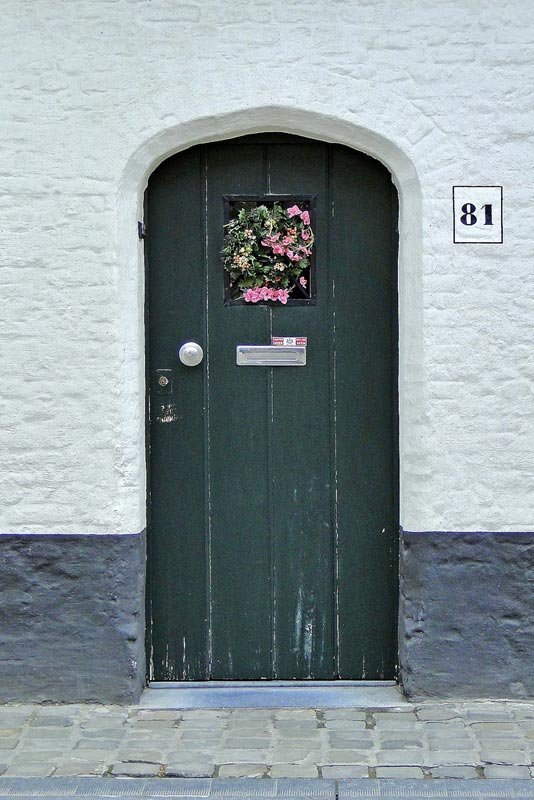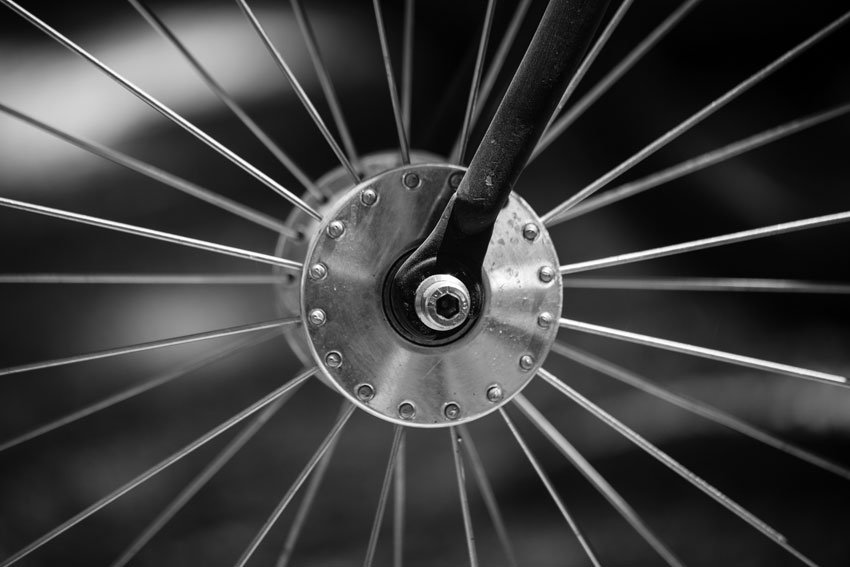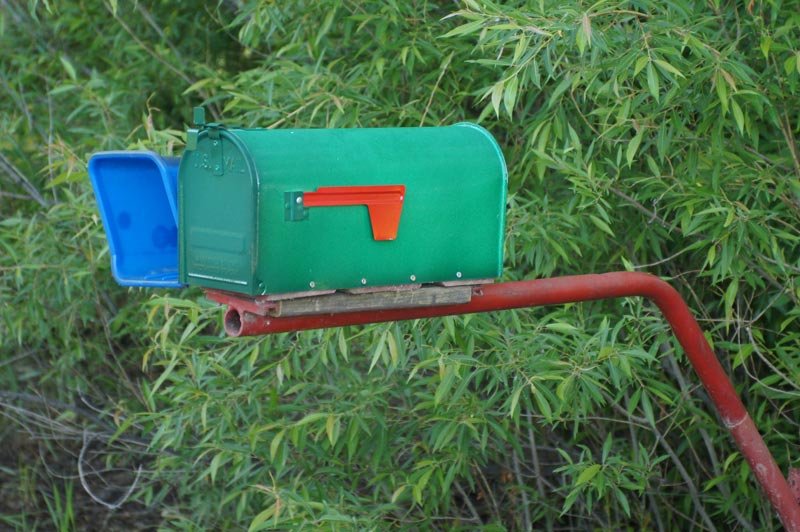I wheel in beside the beige Buick. Ten years ago Mama had claimed its parking space twenty feet below her apartment balcony. From there she watches over her car—a proud reminder that she still has places to go, people to see.
“Hi, Honey!” she calls as my feet swivel from beneath the steering wheel and onto the pavement. I squint upward. Her gray curls are barely visible above the brick ledge. “Hurry on up. I need a hug.”
Juggling my canvas tote and purse I lean down to peep into the half-lowered window of the Buick. Mama’s sunglasses and box of tissues on the console blur from the effect of fumes. What is that odor?

Using a knuckle to wipe away tears that respond to the chemical smell, I blink hard and adjust from outdoor brightness to dim lights inside The Village. A sign above the door reminds me of its “Small Town Charm. Engaging Senior Living.” From the carpeted elevator I step onto a hallway of dark green doors with shiny numbers and engraved nameplates. Behind each is an occupant whose past life is represented by whatever keepsakes and furniture can fit into three small rooms.
Elbowing into Apartment 205, I wonder how many trips I have made. How many more are ahead. I drop my bags beside the raised kitchen counter, the area Mama refers to as her Control Tower. A dog-eared calendar is laid open to April. All thirty squares are filled with handwritten notes, her reminders of birthdays, anniversaries, appointments. Resting atop the calendar are car keys and a sterling silver trinket box. For decades the silver box sat on Mama’s dressing table where it held her favorite “dress-up” earrings. After moving to The Village, the box was relegated to the kitchen to hold each day’s supply of prescription medicine.
Mama stands in the center of the living room, her arms outstretched and ready for my embrace. This diminutive lady is no soft touch. During her first weeks at The Village she rallied enough support to get prettier chandeliers installed in the dining room. She tries to rule her current home with the same propriety she used to run her old one. Although many decades into adulthood and taller than my mother by eight inches, I am still her child. She reminds me often.
We settle into the familiar lobbing. What time did you leave? 3 hours ago. Where did you stop for lunch? Pat’s. Why didn’t Allan come with you? He’s working. Will you stay the night? Not this trip.
She nestles into her red wing chair, motions me onto the matching ottoman, and pulls my hand into hers.
“What kind of jacket is that you’re wearing?” Mama squints during the once-over. “Is that a zipper? It may be a bit too casual for you to wear to the dining room.”
“It’s a blouse, Mama. And this isn’t a zipper; it’s your necklace—the long silver one you gave me, the one Daddy bought for you in Curacao.”
“No matter. I can’t tell what it is, but I’m so glad you’re here,” she sighs. “I get hungry to see you. That sounds funny, I know, but I just miss you, and lately I’ve missed your daddy so much that I want to cry. I dream about him almost every night. But I get myself busy, hop into that old car, and visit folks. I wish I had some kin left. It’s so lonely to be the only one.”
Mama’s eyebrows lift and she adjusts her heavy trifocals toward a line of photos propped beneath the metal magnifying lamp I brought to her on my last trip. See details like never before, the flyer had promised.
“Well, I’m still around, Mama, and I’m here today,” I say as I squeeze her hands and swallow hard, resisting the temptation to touch the twenty years of grief she carries. “By the way, why does your car smell like glue?”
Mama’s shoulders push against the red chair and her chest broadens, her animal defense in the face of danger. “It shouldn’t smell like glue. I kept the windows down all week. I don’t like hiding things, but I didn’t want to tell you what happened. You’ll be upset with me.”
“I won’t be upset. Just tell me.”
Mama narrows her dimming blue eyes and begins. “Do you remember a girl named Linda Jenkins? She said she knew you during your high school years. She is probably older than you. Maybe younger. I’m not sure what she said. She certainly seemed nice. Do you remember her?”

Drawn-out monologues are Mama’s power-play. On my last visit I learned about her newest downstairs neighbor, Mr. Dodson, whom she refers to as “the old man who lives beneath me.” Younger than she by fifteen years, Mr. Dodson made the mistake of changing his bicycle tire in the grass below Mama’s balcony on a frosty March morning. After tending her plants, she dumped the entire contents of her watering pail over the ledge and onto Mr. Dodson’s bald head. He screamed. She screamed. She enjoys telling how their first encounter was awkward, an ice-maker and not an ice-breaker.
“Mama, I remember Linda Jenkins. But I asked you about the glue.”
“I’m getting to that. You know, Honey, you are so impatient these days and it’s not an attractive trait. You need to work on that. Being rushed will make you ill-tempered; try to slow down a bit. Linda Jenkins could not have been kinder or more patient with me over the phone last week. I promised her that I’d remember her to you. We had such a nice conversation.”
“Mama, I’m curious about that glue smell.”
She takes a deep breath and sinks deeper into the chair. “Well, I was on my way home from church last Sunday. No, it was Sunday before last because it was unusual to get out on time. No, I’m wrong. It was two Sundays ago when the minister was on vacation again. If I were still on the Board of Deacons I would have a word with him about being gone so often. Maybe he’s tired of pastoring a small town church like ours. Tired of the old biddies.”
We laugh and name the few “biddies” still around and recall dear friends who aren’t. The late-day sun suddenly throws a shard of light between Mama and me and, for the first time, I see a wound ten years in the making. While no one noticed, the sun had gone about its work of eating through the draperies, breaking down dyes, and turning brilliant red roses into a soft, dull pink. I remember when we bought the beautiful Waverly fabric, laid it across the back seat, and rode together to the seamstress. Fabric and window dimensions were blessed diversions as my 85-year-old mother moved from a house with fifty years of memories and into a retirement facility. ‘I’ve never lived in an apartment,’ she told me when we hung the drapes, on that day when we were giving no thought to the potential damage of western exposure.
“You’re getting impatient with me now, Honey. I can see it.”
“No, Mama, take your time. My mind was wandering. I’m sorry. I’m listening.”
As gray shadows sneak into the parking lot, pushing out the afternoon sunshine, I stand and stretch at the balcony door. Without the glare I now can see a long deep scar in the hood of the Buick.
Mama continues teasing out her story. “It was definitely two Sundays ago, April 7th, because we had communion and I was happy to leave church on time. I wasn’t in a hurry, just driving along, but I suddenly realized the back window was down too far. You know how I hate to have anything blowing back there where my hair is getting thin. Well, I looked down to push the button for the window and, all of a sudden, the sun was so sharp in my eyes and there was a huge noise, an explosion.”
I jerk to attention. “The window made that noise??”

“No, not the window. Linda Jenkins’s mailbox. I hit her mailbox. She obviously had it too close to the edge of Fairview Drive. That’s where she lives, just across from the hospital. She told me she’s lived there for thirty years. I doubt that. If she’s your age, she couldn’t have owned a house for thirty years.”
“Mama, I’ve owned a house for nearly forty years. But that’s not important. What happened to you? What did you do? Were you upset?”
“UPSET? Why, I’ve driven that road every single Sunday for ten years and never had anything happen. In all the years since I got my driving permit in 1939 I have not had so much as a parking ticket. UPSET. I thought I was going to have a heart attack and die right there on Fairview Drive, so I decided the best thing was drive right here to my apartment and get my nerves together. And then the nicest thing happened. As I pulled into my parking spot, a woman came running over to help, to see if I wanted her to call the rescue squad.”
My thoughts jump from fear to guilt to confusion. “Mama!! The rescue squad? How could a woman who is on the other side of the parking lot tell that you needed a rescue squad?”
“For goodness sake, Honey, it was because of the mailbox. It was right there on the hood of my car with the wooden post going through the rider’s side of the windshield. Anyone in their right mind could see that I had a problem. She was as sweet as an angel, here visiting her uncle. Mr. Lee. You remember him, don’t you?”
“Wait…wait. You drove home with the mailbox? With the windshield smashed out, you drove another 2 miles with a mailbox on your hood. Did it cross your mind to call me?”
“Absolutely not. I handled this myself. I settled up with Linda Jenkins and I got my windshield replaced and they probably used too much glue in the process. End of story. I don’t want to talk about this again.”
Mama stands, closes the balcony door, and sweeps the faded drapery edges together. In the dark room she announces, “It time to go downstairs. The waiters bring our appetizers right at six o’clock.”
Later that month I receive a long letter from Mama. Rather than using the familiar monogrammed stationery, she has used yellow legal paper ‘because I have a lot to say.’ Her small tight handwriting is perfectly legible but the entire body of text slants downhill, away from the lines. ‘I am tired of paying insurance premiums,’ she writes, ‘and have decided to sell the Buick. I guess it’s time.’

Share this post with your friends.

